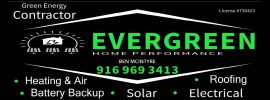Commercial solar panel installation is becoming increasingly popular as businesses strive for sustainability. This trend is especially noticeable in Fairfield, where companies seek eco-friendly energy solutions. Solar power offers numerous benefits, from reducing energy bills to minimizing carbon footprints. This article explores the process of installing solar panels in offices and the associated advantages, including the integration of home battery backup systems in Fairfield. Whether you’re new to solar energy or considering an upgrade, this guide provides essential insights to help you make an informed decision.
Why Choose Solar Panels for Your Office?
Cost Savings
One of the main reasons businesses opt for solar panels is to save on energy costs. Electricity bills can be a significant expense for any office. Solar panels can drastically reduce these costs. With solar energy, companies can produce their power, reducing their dependence on the grid.
Environmental Benefits
Solar energy is a clean, renewable resource. By installing solar panels, businesses can reduce their carbon footprint. This not only helps the environment but also enhances the company’s image. Customers and clients appreciate environmentally responsible companies.
Energy Independence
With solar panels, offices gain more control over their energy supply. This can be particularly beneficial in areas prone to power outages. Fairfield’s home battery backup system can store excess energy, ensuring that offices remain operational even during blackouts.
Understanding Solar Panel Installation
Initial Assessment
The first step in the installation process is an initial assessment. A solar provider will evaluate your office’s energy needs and the building’s suitability for solar panels. This includes assessing the roof’s condition, orientation, and shading.
Designing the System
After the initial assessment, the solar provider will design a customized solar panel system. This design will be tailored to meet your office’s specific energy needs. It will also consider factors such as the size of the roof and local weather conditions.
Obtaining Permits
Before installation can begin, you will need to obtain the necessary permits. The solar provider typically handles this process. They will ensure that your system complies with local building codes and regulations.
Installation Process
Once the permits are in place, the actual installation can begin. This involves mounting the solar panels on the roof and connecting them to the building’s electrical system. The installation process usually takes a few days to complete.
Inspection and Activation
After installation, the system will undergo a final inspection. Once it passes, the solar provider will activate the system, and your office can start using solar energy.
Integrating Home Battery Backup Systems
Benefits of Battery Backups
A home battery backup system in Fairfield can store excess solar energy produced during the day. This energy can be used during the night or power outages. Battery backups ensure a consistent power supply, even when the sun isn’t shining.
Types of Batteries
There are several types of batteries available for solar energy storage. Lithium-ion batteries are the most popular due to their efficiency and long lifespan. Other options include lead-acid batteries and flow batteries. Your solar provider can help you choose the best option for your office.
Installation of Battery Systems
Installing a battery backup system typically occurs alongside the solar panel installation. The batteries are connected to the solar panels and the building’s electrical system. This ensures that excess energy is stored efficiently.
Financial Incentives for Solar Panel Installation
Tax Credits
One of the most significant incentives for installing solar panels is the federal tax credit. Businesses can deduct a percentage of the installation cost from their federal taxes. This credit can significantly reduce the overall cost of the system.
Rebates and Grants
Many states and local governments offer rebates and grants for solar panel installation. These programs provide additional financial assistance, making solar energy more affordable for businesses.
Accelerated Depreciation
The federal government allows businesses to depreciate the cost of solar panel systems over a shorter period. This accelerated depreciation can provide substantial tax savings, further offsetting the installation cost.
Maintenance and Longevity of Solar Panels
Regular Inspections
To ensure that your solar panel system operates efficiently, regular inspections are essential. These inspections can identify and address any issues before they become significant problems.
Cleaning the Panels
Solar panels require minimal maintenance, but keeping them clean is crucial. Dirt and debris can reduce their efficiency. Regular cleaning can ensure that your panels continue to operate at peak performance.
System Upgrades
As technology advances, upgrading your solar panel system may become necessary. Newer panels and batteries offer improved efficiency and longer lifespans. Periodic upgrades can help you maximize your system’s benefits.
Case Studies of Successful Installations
Example 1: Small Office in Fairfield
A small marketing firm in Fairfield installed a 20 kW solar panel system with a home battery backup. The firm saw a 40% reduction in its energy bills within the first year. The battery backup ensured uninterrupted power during several local outages, allowing the business to maintain operations without disruption.
Example 2: Large Corporate Office
A large corporate office in Fairfield opted for a 100 kW solar panel system. They also integrated a battery backup system to store excess energy. The company reported a significant decrease in energy costs and improved energy independence. The installation also boosted their corporate social responsibility profile, attracting environmentally conscious clients.
Conclusion
Installing solar panels in your Fairfield office is a smart investment. It offers numerous benefits, including cost savings, environmental impact reduction, and energy independence. With the added advantage of home battery backup systems, your office can enjoy a reliable power supply even during outages. Financial incentives make the initial investment more manageable, and regular maintenance ensures long-term efficiency. By choosing solar energy, your business can contribute to a sustainable future while reaping substantial benefits.




